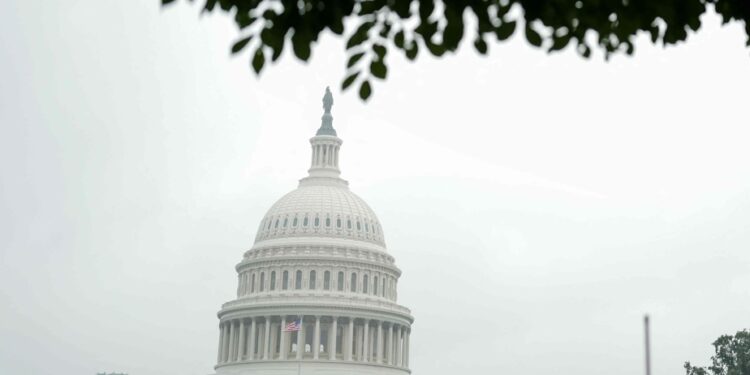Elected officials who speak to the Congress in Washington use less and less evidence and facts, and speak more of their “intuitions”, according to a new study carried out on the speeches pronounced from 1879 to 2022. “This decline was accompanied by a growing partisan division and an increase in inequalities of income in society”, note the researchers.
Speech content
Are the speeches of elected officials a reflection of their time? A new study examining more than 145 years of speech delivered to the American Congress shows a deterioration in their quality. The authors of Computational Analysis of US Congressional Speechepublished in the scientific journal Nature Human Behaviour, wanted to know if the speaking has changed over time. To do this, they analyzed 8 million transcriptions of speeches pronounced in the congress between 1879 and 2022.
Personal experiences
To assess the content of speeches, they compared the relative salience of the language based on factual evidence in relation to the language based on intuition in order to determine a evidence-moens-intuition for each year. Result: between the beginning of the XXe Century and the mid -1970s, the prevalence of evidence and convincing data increased in the speeches pronounced in the Congress. Since then, it has fallen in an unprecedented and constant way, revealing a greater share made “to feelings, to instinct, to personal values and other elements drawn mainly from the interior experiences of a person”, indicate the researchers. This is significant, because “factual language serves as a tool to establish a shared understanding of the state of the world and contributes to the formulation of informed decisions”.
Reagan effect?
The impact of the media on politicians could explain the phenomenon, notes in an interview Stephan Lewandowsky, cognitive science researcher at the University of Bristol, in the United Kingdom, and co-author of the study. “For example, Ronald Reagan (who was president from 1981 to 1989) revolutionized the political language of the time being the first to use an explicit“ familiar ”language rather than more conventional technical discourse. He was of course a huge success with this approach. It is therefore quite possible that this has triggered a change in political culture, others trying to imitate it. But we do not yet have a final answer. »»
Photo Armand Trottier, Archives La Presse
Ronald Reagan, then President of the United States, with the Prime Minister of Canada Brian Mulroney, in Quebec, in March 1985
Division and inequalities
The researchers also note that the decline of reasoning based on facts coincides with the exacerbation of the political division and the increase in income inequality. Is there a cause and effect link? “We cannot say for certainty that the associations we have observed are causal,” explains Mr. Lewandowsky. However, this corroborates the idea that language determines the capacity for action of the congress, which in turn influences the legislation which has an effect on inequalities. However, we cannot be certain of it, because a third underlying variable could be involved. »»
A phenomenon that is repeated
This is not the first time that discourse has paid more to intuition. From 1899 to 1901, the score also fell markedly, a phenomenon also observed from 1933 to 1935, note the researchers. “In the 1890s, the United States experienced a golden age marked by rapid industrialization and economic growth, but also by social problems and increasing economic inequality. The 1930s were marked by the great depression, during which the country was struggling with high unemployment, generalized poverty and social upheavals. These economic and social upheavals have probably influenced the language used in the congress during these periods, ”they write.
Photo Getty Images
A slum originated in Central Park, New York in the early 1930s
Honesty
Are there solutions to this problem? Is it possible to refocus political discourse on facts and evidence? Stephan Lewandowsky believes that it is not irreversible. “Our research shows that when people are asked to take accuracy of accuracy as a sign of honesty – in other words, when they are encouraged to pay attention to the language based on facts – they become less tolerant towards politicians who violate democratic standards. This suggests that there is a link between the value given to factual honesty and the health of democracy. But there is a difference between observing this phenomenon in the laboratory and achieving it to the scale of a whole society. »»



